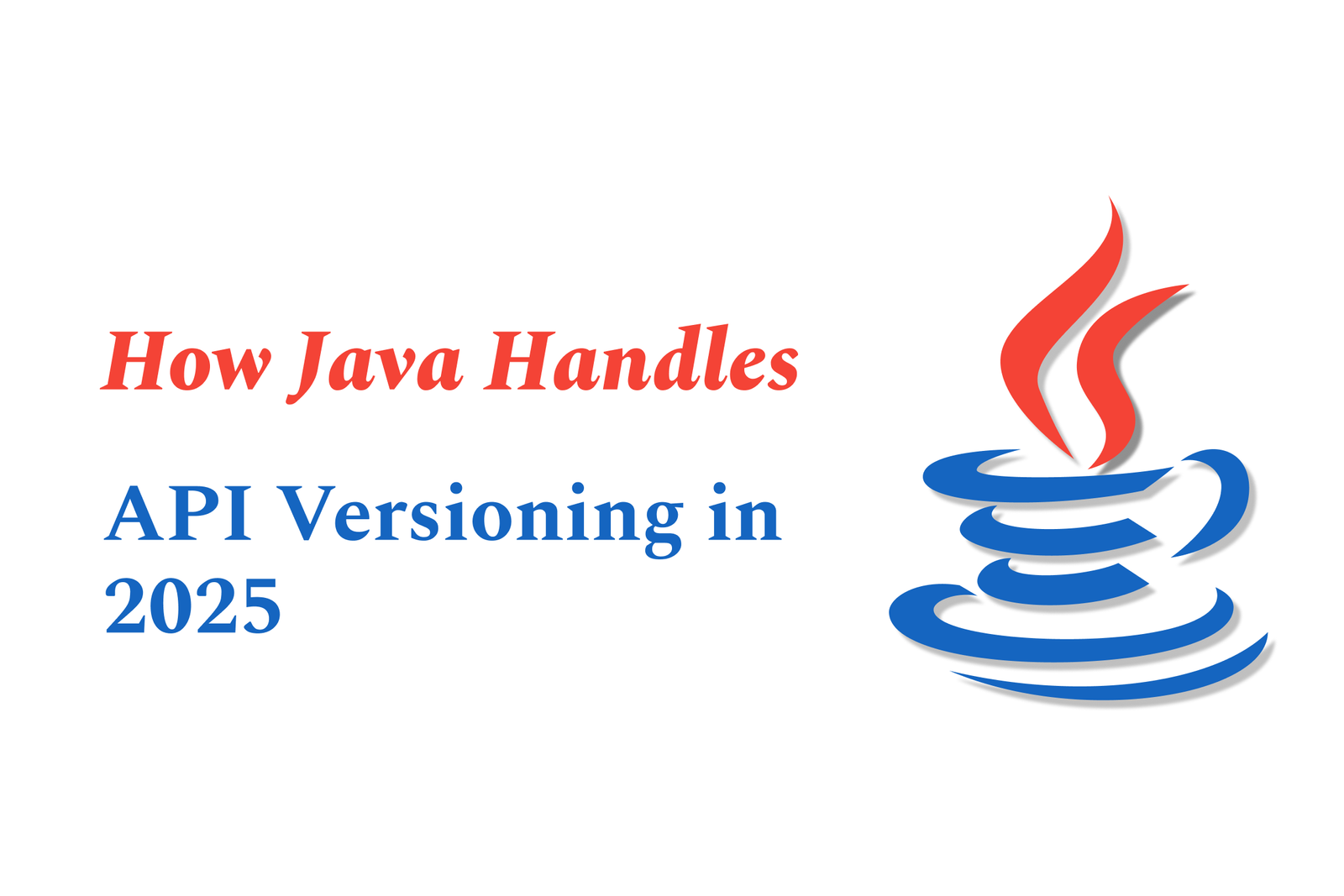How Java Handles API Versioning In 2025
In 2025, Java handles API versioning through explicit version specifications in SDKs and headers, ensuring backward compatibility, security, and smooth upgrades. It emphasizes stable LTS support, semantic versioning, and coordinated cloud API lifecycle management for reliable integrations.
How Java Handles API Versioning in 2025
1 ) Overview of API Versioning in Java Ecosystem
In 2025, Java continues to evolve its approach to API versioning to maintain backward compatibility, security, and feature enhancements. Large scale platforms like Azure and AWS demonstrate best practices by supporting multiple API versions simultaneously, allowing developers to specify which version they want to work with for any storage or service operation. This approach prevents disruptions and enables gradual migrations to newer API versions.
2 ) Azure Storage API Versioning
Azure Storage exemplifies robust versioning management by requiring users to specify an `x ms version` header for operations.
As of mid 2025, Azure Storage supports multiple fully deployed versions such as 2025 07 05 (General Availability) and 2025 11 05 (Beta).
Newer SDK releases correspond with the rollout of these API versions and only finalize GA releases after the default API version is fully deployed across all regions.
This versioning strategy prevents errors arising from version mismatches and promotes stable, region wide API availability.
3 ) AWS SDK for Java Versioning
AWS SDK for Java has transitioned from version 1 )x (maintenance mode as of July 2024, with a final support date in December 2025 ) to version 2.x, which delivers new features, including pluggable HTTP implementations.
This migration reflects a broader industry shift emphasizing that Java API versioning encompasses entire SDK lifecycle management.
Developers are encouraged to adapt to newer SDK versions promptly to benefit from security updates and enhancements.
4 ) Java SE Version History and API Evolution
Java SE versioning extends to language features and API contracts. The ecosystem acknowledges Long Term Support (LTS) releases like Java 8, 11, 17, 21, and upcoming versions including Java 25 (LTS).
Versioning is carefully managed within Java SE to avoid breaking existing applications, offering incremental updates through non LTS releases while ensuring comprehensive support for LTS lines.
This methodical approach enables enterprise adoption without sacrificing innovation.
5 ) Apache POI as an Example of Security Aware Versioning
The Apache POI project, a widely used Java API for Microsoft Documents, illustrates how security vulnerabilities impact API versioning and release strategies.
With sequenced updates like version 5.4.1 addressing critical issues (e.g., input validation CVEs), projects maintain version hygiene by releasing fixed versions and recommending upgrades.
This exemplifies that API versioning is also about safe, reliable user experience through timely patching.
6 ) Best Practices for Java API Versioning in 2025
Prefer explicit version specification in both HTTP headers and SDK configurations to avoid ambiguity.
Use LTS Java platform versions for stable API support while adopting newer SDK versions for enhanced features and security.
Monitor vendor specific changelogs and release notes for information on supported API versions and upgrade timelines.
Maintain backward compatibility when evolving APIs to minimize disruption to existing clients.
Employ semantic versioning in API design and SDK releases to communicate changes clearly.
Conclusion
In 2025, Java’s handling of API versioning emphasizes stability, security, and smooth migration paths. Integration with cloud SDKs like Azure and AWS reflects a mature ecosystem where explicit version control, lifecycle management, and timely updates are cornerstones of API strategy. Java developers are encouraged to embrace these practices to build resilient and future proof applications.
https://justacademy.in/news-detail/spring-boot-security-enhancements-in-2025
https://justacademy.in/news-detail/how-react-native-is-powering-the-future-of-smart-home-apps
https://justacademy.in/news-detail/apple-swift-6.0-released-with-major-changes
https://justacademy.in/news-detail/why-react-native-is-still-relevant-in-2025
https://justacademy.in/news-detail/flutter-in-fintech-app-development
Related Posts
In 2025, top Angular libraries offer modern, feature-rich components and tools for building dynamic web apps. From powerful data grids to low-code platforms like UI Bakery, these libraries enhance development speed, UI design, and scalability, making them essential for Angular developers.
Migrating from AngularJS to Angular 17 involves gradually upgrading your app by running both frameworks together using tools like ngUpgrade, rewriting components in TypeScript, and adopting Angular’s modern architecture to enhance performance, maintainability, and long-term support.
Angular state management tools help organize and handle app data efficiently, improving scalability and maintainability. Popular options include NgRx for robust, RxJS-based patterns, and newer Signal Store solutions that offer simpler, reactive approaches integrated tightly with Angular’s latest features.
RxJS in Angular empowers developers to manage asynchronous data streams with powerful operators like `forkJoin`, `combineLatest`, and `zip`. Mastering these key operators in 2025 is essential for building efficient, reactive applications that handle complex event sequences seamlessly.
Angular performance optimization in 2025 focuses on improving app speed and responsiveness by using techniques like OnPush change detection, lazy loading, efficient data caching, and AOT compilation. These practices reduce load times, enhance user experience, and ensure scalable, fast Angular applications.
In 2025, Angular remains preferred for large-scale, enterprise apps with its robust, all-in-one framework, while Vue attracts developers seeking simplicity and fast development for smaller projects. Both frameworks excel, with choice driven by project needs and team expertise.
Angular Signals are a new reactive primitive in Angular 16 that enable fine-grained, efficient change detection by automatically tracking dependencies and updating only affected parts of the UI. They simplify state management and boost app performance, revolutionizing Angular's reactivity model.
Angular interview questions to prepare in 2025 focus on core concepts like components, directives, data binding, routing, and dependency injection, along with TypeScript mastery and latest Angular features to ensure strong practical knowledge for building scalable, efficient web applications.
AngularJS reached its official end of support in January 2022, meaning no further updates or security patches. To ensure app security and performance, developers should consider migrating to modern Angular versions or seek third-party long-term support options if immediate migration isn’t possible.
The Angular Roadmap 2025 highlights upcoming features focused on improving developer experience and performance, including zoneless Angular, Signals integration, enhanced Forms, async data handling, improved HMR, and expanded Angular Material/CDK enhancements, driving modern, efficient web app development.










